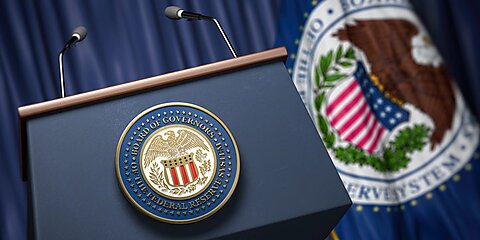Politicians love to blame the Fed when the economy goes south, and recent weeks have been an exception only in the delivery of that blame. It’s much harsher and more childish than normal. For example, Fed Chair Jerome Powell is under serious pressure, with President Trump hurling insults at him and again calling on him to lower rates by as much as 2 percentage points. Trump said,
We’re going to spend $600 billion a year, $600 billion because of one numbskull that sits here [and says] ‘I don’t see enough reason to cut the rates now.’
Commerce Secretary Howard Lutnick aired similar complaints, saying,
It’s unbelievable how much we would save if [Powell] did his job and he cut interest rates. The economy is ready for it. It’s easy. Inflation is low.
The administration continues to exhibit a poor understanding of the theory and practical implementation of economics, this time as it pertains to monetary policy. The Fed does not control all interest rates and borrowing costs. The Fed influences the federal funds rate (FFR), which in turn can influence other borrowing costs and the economy at large. But the mechanism is indirect and imperfect, and the Fed can’t ignore the basic laws of economics.
Changing the FFR has limited effects on further borrowing costs. This is especially true in the post-2008 monetary policy regime, where the Fed has severely diminished the private market for loanable funds between banks. Banks are now flush with reserves, and changes to the FFR, the rate which banks lend reserves to each other, do not seriously affect borrowing decisions. As a result, the transmission from the FFR to larger borrowing costs, such as the Treasury bonds that help fund the US government, is weaker than in the past. As a Cato CMFA article showed, the correlation between the FFR and the 10-year Treasury yield fell from nearly 100 percent pre-2008 to 71 percent post-2008. Of course, the Fed could make a drastic change to the FFR to affect bond yields, but this would go against the basic tenets of monetary policy, which favor gradual changes to the FFR.
Even if the Fed could control borrowing costs to help reduce the debt, it should not. If the Fed is to be effective, it cannot be viewed by market participants as nothing more than an arm of the fiscal authority, existing only to facilitate reckless government borrowing and spending. Its interest rate target decisions should be guided by sound macroeconomics, such as rules-based monetary policy. If such rules indicate that rates should be cut, the Fed should do so. (In fact, Congress could mandate the Fed follow such a rule and shield it from perpetual urging by elected officials with a political agenda.)
A worse outcome is that the drastic changes the administration is calling for run the risk of pushing rates even higher. This is because macroeconomic outcomes are affected by how far the FFR is from its equilibrium or “optimal” value. If rates are set much lower than this equilibrium value, it could result in higher inflation, which would result in a sharp increase in rates. If the Fed were to listen to the president and suddenly sharply cut rates, it is likely to trigger such a scenario.
This is not just a theoretical concern. The administration needs only to look to Turkey as a recent case study of the dangers of this kind of executive overreach into monetary policy. There, President Erdogan took control of monetary policy to forcibly lower rates, and the effects were catastrophic. The inflation rate has been over 50 percent in Turkey for most of the past three years. Consequently, the Turkish administration had to reverse course and raise the policy rate sharply—it is currently 46 percent.
It is easy, and increasingly common, for politicians to blame the Fed and deflect criticism from themselves. But blaming the Fed for US interest payments on debt absolves the government of its reckless borrowing.
For the US to maintain its economic standing, its monetary authority cannot be viewed as a mere arm of the fiscal agent. If elected officials would like to reduce interest payments on debt, they should exercise fiscal responsibility and cut spending.

